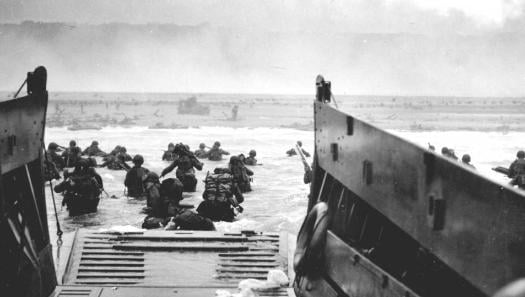Military & Veterans News
Vet News: Military Health Care Making Advances
Sgt. Sara Wood, American Forces Press Service

WASHINGTON, Dec. 13, 2006 – The military has made tremendous advances in health care in the last decade and specifically since the start of the wars in Iraq and Afghanistan, the top Defense Department official for health care said here yesterday.
Body armor, eyewear, new surgical techniques and improved medical data collection in this conflict have all contributed to the lowest “killed-in-action” rate in history, Dr. William Winkenwerder Jr., assistant secretary of defense for health affairs, said in a roundtable discussion with retired military analysts.
The killed-in-action rate for operations Enduring Freedom and Iraqi Freedom is 12.5 percent, vs. 18.6 percent for the first Gulf War and Vietnam, and 25.3 percent for World War II, he said. The killed-in-action percentage measures the number of servicemembers killed out of the number wounded.
“Basic stuff is making a difference. Obviously, it doesn’t save every injury, but it mitigates a lot of the injuries,” Winkenwerder said.
As of Dec. 2, 23,119 servicemembers had been wounded in Iraq and Afghanistan, he said. Of those, 55 percent returned to duty within 72 hours, he pointed out. “People miss that, and I think it’s an important thing,” he said.
Winkenwerder pointed out some other surprising statistics: of the 37,058 servicemembers medically evacuated from the U.S. Central Command area of operations as of Dec. 4, 59 percent have been for disease and 21 percent for non-battle injuries; also, as of Nov. 1, the war on terror has produced 760 amputees, of which 500 lost a limb, hand or foot, and 260 lost fingers or toes only.
A major issue in this conflict has been post traumatic stress disorder, Winkenwerder noted. The best statistics on PTSD come from an Army study done on soldiers and Marines returning from their first or second rotations in Iraq or Afghanistan, in which the rate of servicemembers who screened positive for PTSD on a questionnaire was 12 percent, he said. He noted, however, that the pre-deployment rate of PTSD was about 7 or 8 percent.
To provide better mental health care for servicemembers, the military now does a pre-deployment screening, a post-deployment screening, and a follow-up screening three to six months after troops return, Winkenwerder said. This follow-up assessment is important, because many troops don’t report problems right after a deployment, but these problems surface later, he said.
These extra assessments give military officials more data to work with when analyzing mental health trends and developing new programs to help servicemembers, Winkenwerder said.
“It’s a real profile of what’s going on with our people that we did not used to have, and it’s allowed us to develop new programs to reach out where the need is,” he said. “I think they’re making a difference; we’ve gotten very good feedback.”
Another area that has seen notable progress is amputee rehabilitation, Winkenwerder said. Of the total number of amputees, 25 percent have been returned to duty. “The spirit there is unbelievable,” he said.
More improvements are on the way for military health care, as the new Walter Reed National Military Medical Center is built in Bethesda, Md., Winkenwerder said. The building will be next to the Uniformed Services University of the Health Sciences and across the street from the National Institute of Health, creating a collaborative environment that will lead to new and better health care for troops, he said.
SOURCE: VNIS


